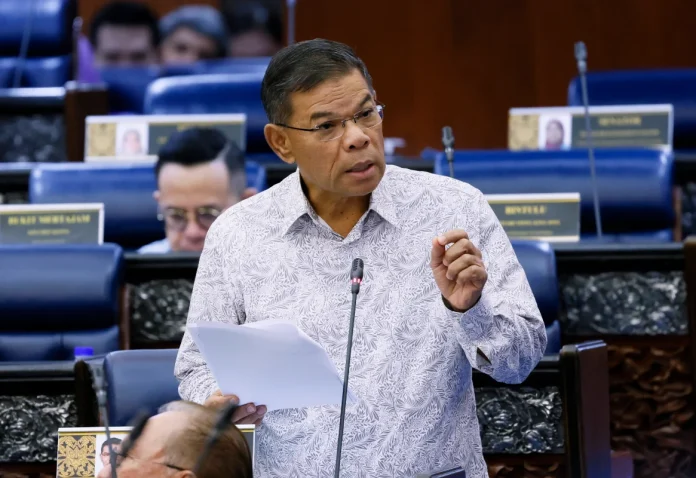Datuk Seri Saifuddin Nasution Ismail said that apart from improving physical facilities such as dilapidated prisons, focus is also being given to the management of vulnerable groups among prospects such as the elderly and disabled.
PUTRAJAYA: The Home Ministry (KDN) is implementing a comprehensive reform of the country’s prison management system by emphasising the well-being of prospects and the effectiveness of rehabilitation outside the walls.
Home Minister Datuk Seri Saifuddin Nasution Ismail said that apart from improving physical facilities such as dilapidated prisons, focus is also being given to the management of vulnerable groups among prospects such as the elderly and disabled.
“An aspect that I would also like to emphasise is the 4,000 in the vulnerable groups (in prison) because some of them are physically disabled or elderly people who have been convicted and sentenced to prison.
“So we need to create and think about facilities that are more friendly to the disabled (OKU) and toilets, for example. I want to translate the value of MADANI – have mercy on them. Even though the number is small, I have a moral responsibility to manage this matter,” he said.
Saifuddin Nasution said this in an exclusive interview with Bernama led by editor-in-chief Arul Rajoo Durar Raj at the minister’s office recently.
— MORE
SAIFUDDIN-PRISON 2 PUTRAJAYA
According to Saifuddin Nasution, the ministry is now also looking into the process of replacing dilapidated prisons such as Pengkalan Chepa Prison in Kelantan and Alor Setar Prison in Kedah as part of efforts to improve the existing infrastructure which is increasingly unsuitable to meet current needs.
Going beyond the traditional approach, the Ministry of Home Affairs through the Prisons Department also implements rehabilitation programmes outside the prison walls such as the parole system and Compulsory Attendance Order (PKW) which have proven effective in reducing the rate of recidivism.
He said the latest data from the Prisons Department showed that only one in 800 programme participants returned to crime after being released, compared to the recidivism rate among prospects who served their full sentences in prison, which recorded a much higher recidivism rate of about 13 out of every 100 people.
“When they are mentored outside of prison, they gain skills and change. Data shows that rehabilitation outside the walls is much more effective,” said Saifuddin Nasution.
Saifuddin Nasution said the community-based approach also helped change the public’s perception of prospects, when they successfully proved their ability to contribute back to society.
— MORE
SAIFUDDIN-PRISON 3 (LAST) PUTRAJAYA
“In the past, when we released them (prospects) to be placed in one village, some objected but now, (some informed) they themselves asked to increase from 260 to 500,” he said.
Commenting on efforts to reduce the pressure on prisons which currently house 87,000 individuals compared to the capacity of 73,000, Saifuddin Nasution said the Ministry of Home Affairs was finalising an amendment to the Prison Act to allow for house arrest orders for remand prisoners.
He said that of the total, 30,000 were prospects who had not been convicted of any offence and some of them could not afford to pay bail, thus becoming the biggest contributor to overcrowding.
“If we had a house arrest act for remand detainees, we can release them. The immediate effect is that prisons will be less crowded,” he said.
The infrastructure and rehabilitation system reforms that are being implemented reflect the government’s efforts to make the country’s justice system more inclusive, humane and in line with the values of Malaysia MADANI, said Saifuddin Nasution.








